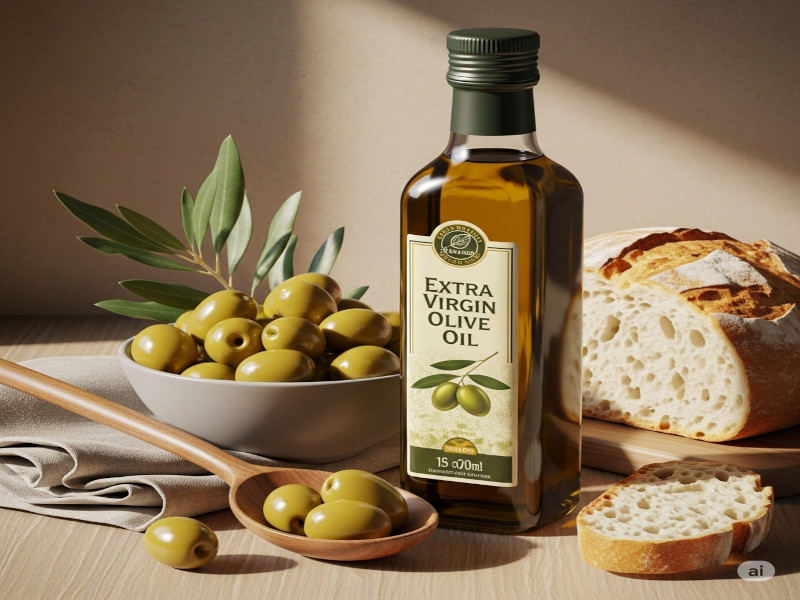Extra Virgin Olive Oil: What Makes It "Extra Virgin"?

Extra Virgin Olive Oil: What Makes It "Extra Virgin"?
Extra Virgin Olive Oil (EVOO) is the highest quality category of olive oil available. But what exactly makes it "extra virgin"? Let's find out.
What makes it "extra virgin" is a combination of factors related to its production method, chemical characteristics, and sensory profile.
Here are the key points:
1. Extraction Method (Mechanical Process and "Cold Pressing"):Only Mechanical Means:
Extra Virgin Olive Oil must be obtained exclusively from healthy, fresh olives using mechanical processes or other physical means. This means no chemical solvents or refining processes are used to extract the oil.
Cold Pressing (or Cold Extraction):During the extraction process, the temperature must not exceed 27°C (80.6°F). This is crucial because high temperatures can alter the oil's chemical composition, degrading its quality, flavor, and nutritional properties.
"First Pressing":Although the term "first pressing" is often used, it's important to note that EVOO does not undergo "second pressings." It is the pure juice obtained from the first and only extraction of the olives.
2. Chemical Characteristics:
Low Free Acidity:This is one of the most important parameters. The free acidity (expressed as oleic acid) must be less than or equal to 0.8 grams per 100 grams (or 0.8%). Lower acidity indicates that the olives were healthy at the time of harvest and that the extraction process was well-managed. High-quality oils often have much lower acidity (0.1%-0.3%).
Low Peroxide Value:The peroxide value indicates the initial level of oxidation of the oil. A low value (generally less than or equal to 20 meq O2/kg) is an indicator of freshness and good preservation.
UV Absorption:These parameters measure the oil's oxidation state. Low values (K
232=2.50, K 270=0.22, K=0.01) indicate that the oil has not been altered or subjected to degrading processes.
Polyphenols and Antioxidants:While not a direct classification requirement for "extra virgin" labeling, high-quality extra virgin olive oils are rich in polyphenols and other antioxidants. These compounds are responsible for many of olive oil's health benefits and contribute to its characteristic flavor (bitter and pungent).
3. Sensory Profile (Organoleptic Assessment):
Absence of Defects:Extra Virgin Olive Oil must be free from detectable sensory defects. A panel of expert tasters evaluates the oil to ensure it doesn't have unpleasant flavors or odors such as rancid, moldy, metallic, winey/vinegary, fusty (from fermented olives), etc. The median of defects must be zero.
Positive Fruitiness: It must exhibit a positive fruity attribute (median of fruitiness greater than zero), which can range from green olive to ripe olive notes. It may also have notes of bitterness and pungency, which are considered positive attributes and indicate the presence of polyphenols.
In practice, an olive oil is "extra virgin" if it is the pure, natural "juice" of olives, extracted only by mechanical means at low temperatures, with very low acidity, and without any flavor or odor defects. These strict conditions guarantee the highest quality, best flavor, and the retention of its beneficial health properties.
Our Oil "Extra Virgin" is 100% Italian. Find out more about:
www.olioasta.it
Data:01-07-2025 16:28
In
OilExtra Virgin Oil Castelvetrano Oil Asta Oil Belice Oil  Extra Virgin Olive Oil: What Makes It "Extra Virgin"?
Extra Virgin Olive Oil: What Makes It "Extra Virgin"?